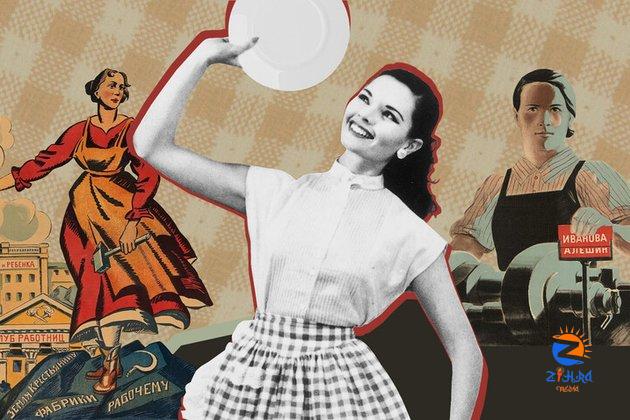
[ad_1]
Women in the Soviet Union worked on par with men. Every citizen – no matter the gender – was obligated to contribute to society. The Criminal Code had an article about “parasitism” – aka citizens who didn’t work. But were all Soviet women forced to work?
Women in the USSR, ironically, had more opportunities than, for example, American women. They received their right to vote in 1924. They had the right to work and receive payment on par with men. They became ministers, factory directors, academics, university rectors and party leaders. They had a common duty to the state – to contribute to it. The state declared: there’s no differentiating between women’s or men’s work, everyone has to work.
Sounds like gender equality? On paper, maybe. But, in reality, not at all.
Why did the Bolsheviks do this?
Today researchers state: Soviet authorities used the topic of gender freedoms to solve their economic matters.
“The Bolshevik Party, as any other party, by involving women in politics and nation-building, solved certain practical objectives. It’s not a coincidence that active mobilization policy began during the Civil War, when Soviet authorities were hanging by a thread and had to leverage absolutely all resources, including working women,” Olga Shnyrova, a gender researcher, says.
And even when, by the 1930s, Soviet authorities had somewhat solidified their positions, they still required a powerful labor pool for mass industrialization and collectivization. The country needed working women. By that time, talks about the role of women in the public and political spheres had fizzled out a bit, but the propaganda of female labor was at its peak.
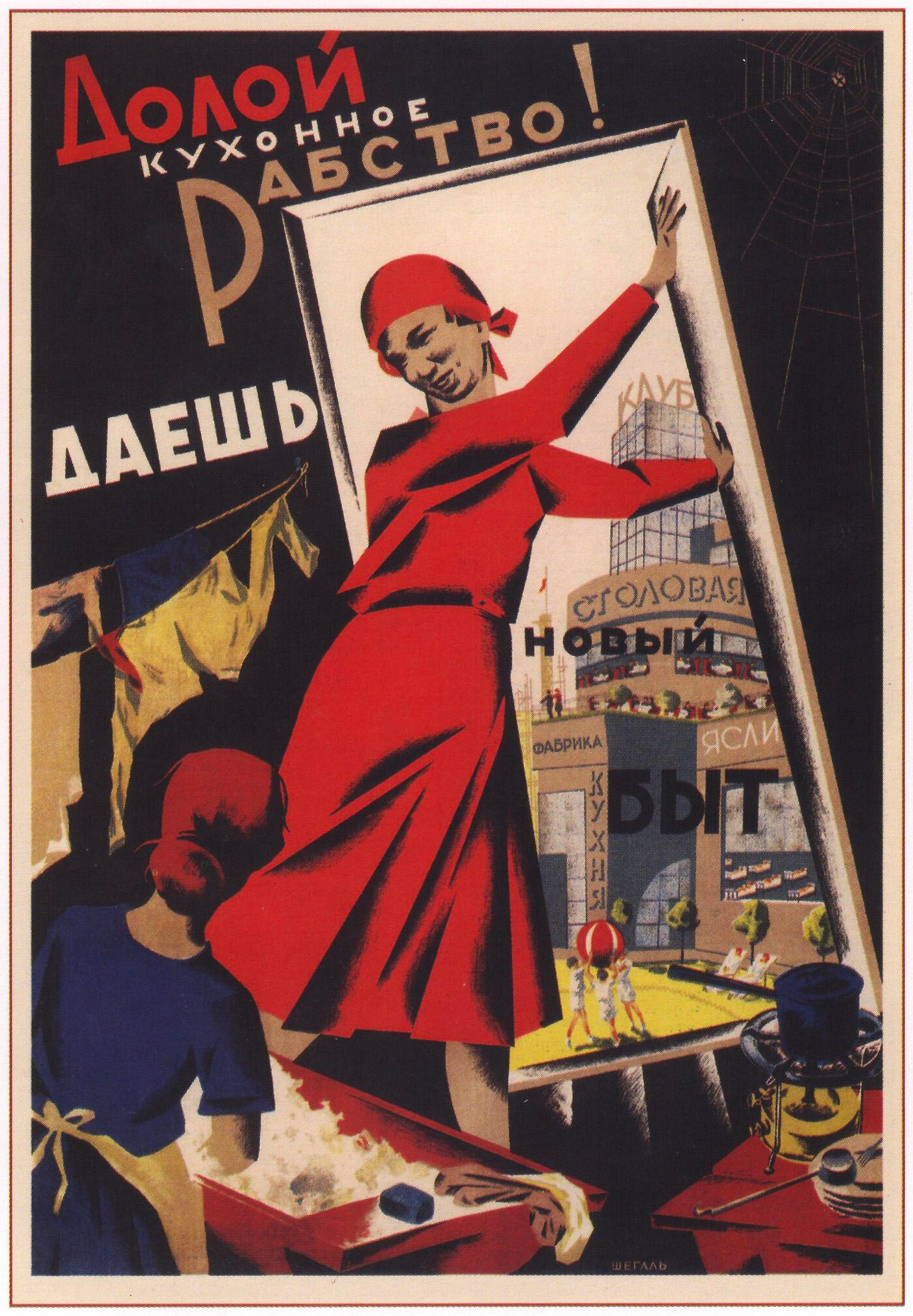
Public domain
Poster: Soviet propaganda implored women not to be hostages to kitchen slavery, to put their children into nurseries and to go to work.
During the first years of its existence, the Soviet state really tried to “pull” women away from families – so everyone could finally work only on the revolution and the building of communism. In any way it could, the state developed the social and household service spheres: nurseries, kindergartens, Young Pioneer camps, canteens, etc. Children had to be raised by the state so as to not distract their parents.
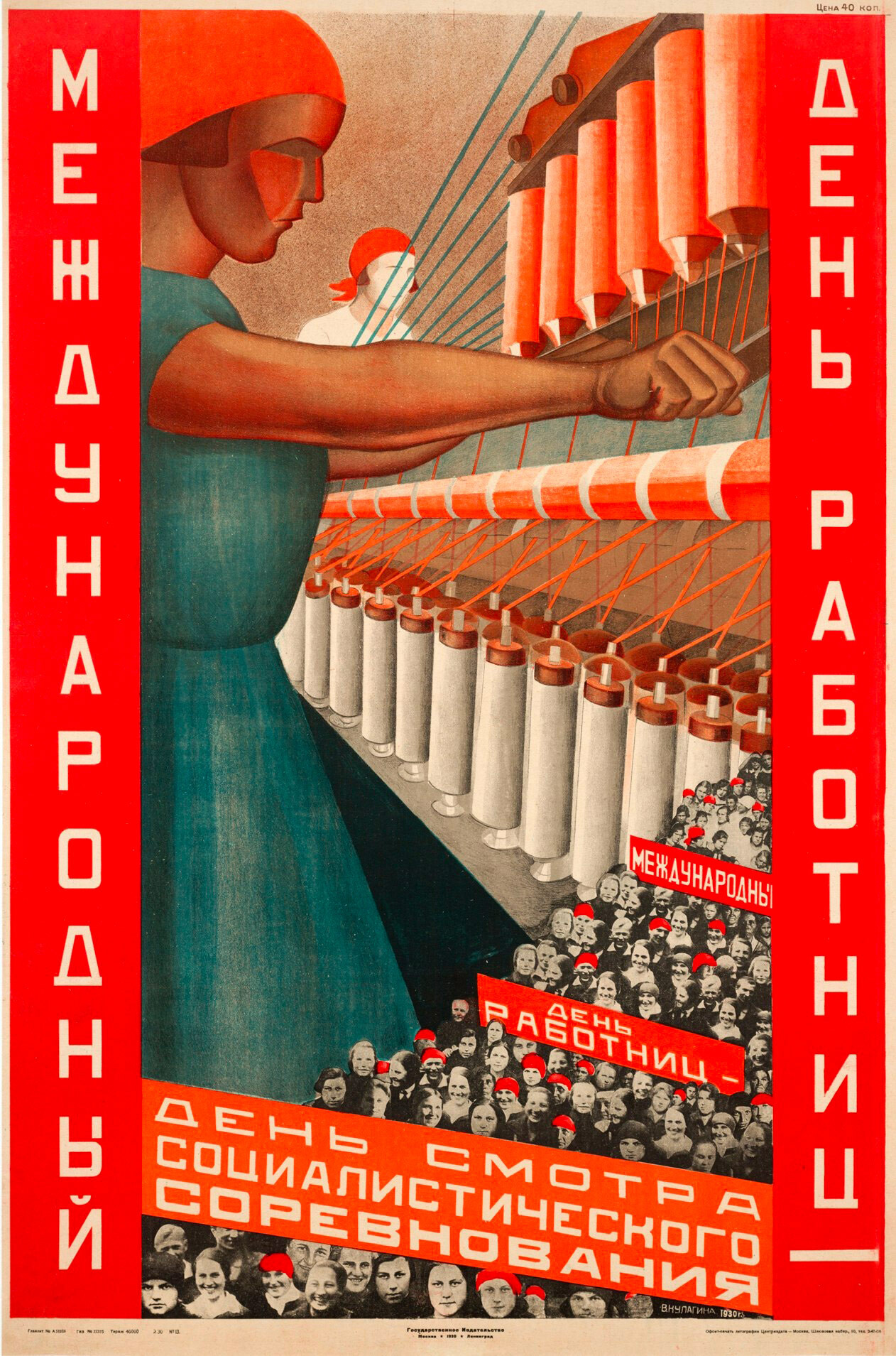
Public domain
However, the Bolsheviks realized quite quickly that this was hard to achieve – if only because society was not ready for it. So, they changed the concept. Now, a woman had to become, at the same time, a builder of socialism and homeliness, a wife and a mother; she had to play three roles. But what could women who only wanted to be housewives do?
Housewife without a pension
The USSR’s attitude towards housewives wasn’t constant. In the 1920s-1940s, women went to work in industry by themselves – the ideas of gender equality were popular among workers themselves. Besides, during and after the war, due to heavy losses among the male population, work was a necessity.
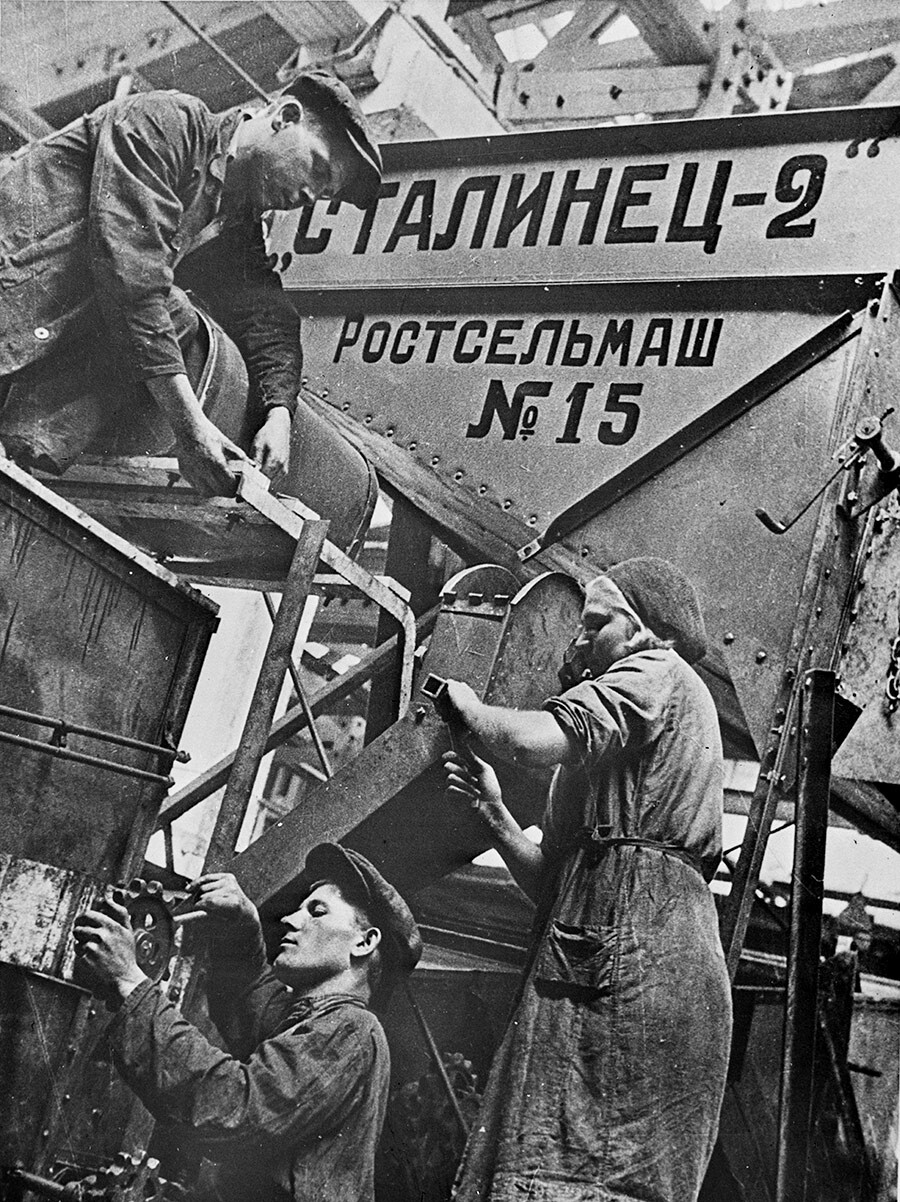
Universal History Archive/Getty Images
At the same time, all these years, along with factory laboring women and milkmaids, Soviet screens showed housewives in their customary role for a patriarchal society: while their husbands toiled in a mine or behind a machine, their wives waited for them at home, taking care of house chores and kids. The heroine of the movie ‘It Happened in Penkovo’ (1957) was like that – she married a handsome tractor driver and dreamed of the simple “woman’s happiness” – a faithful husband and children.
By the 1960s, the housewife had almost disappeared from screens, which to some degree reflected the needs of the time. The prestige of a higher education and a working career was on the rise, while the status of a regular housewife diminished.
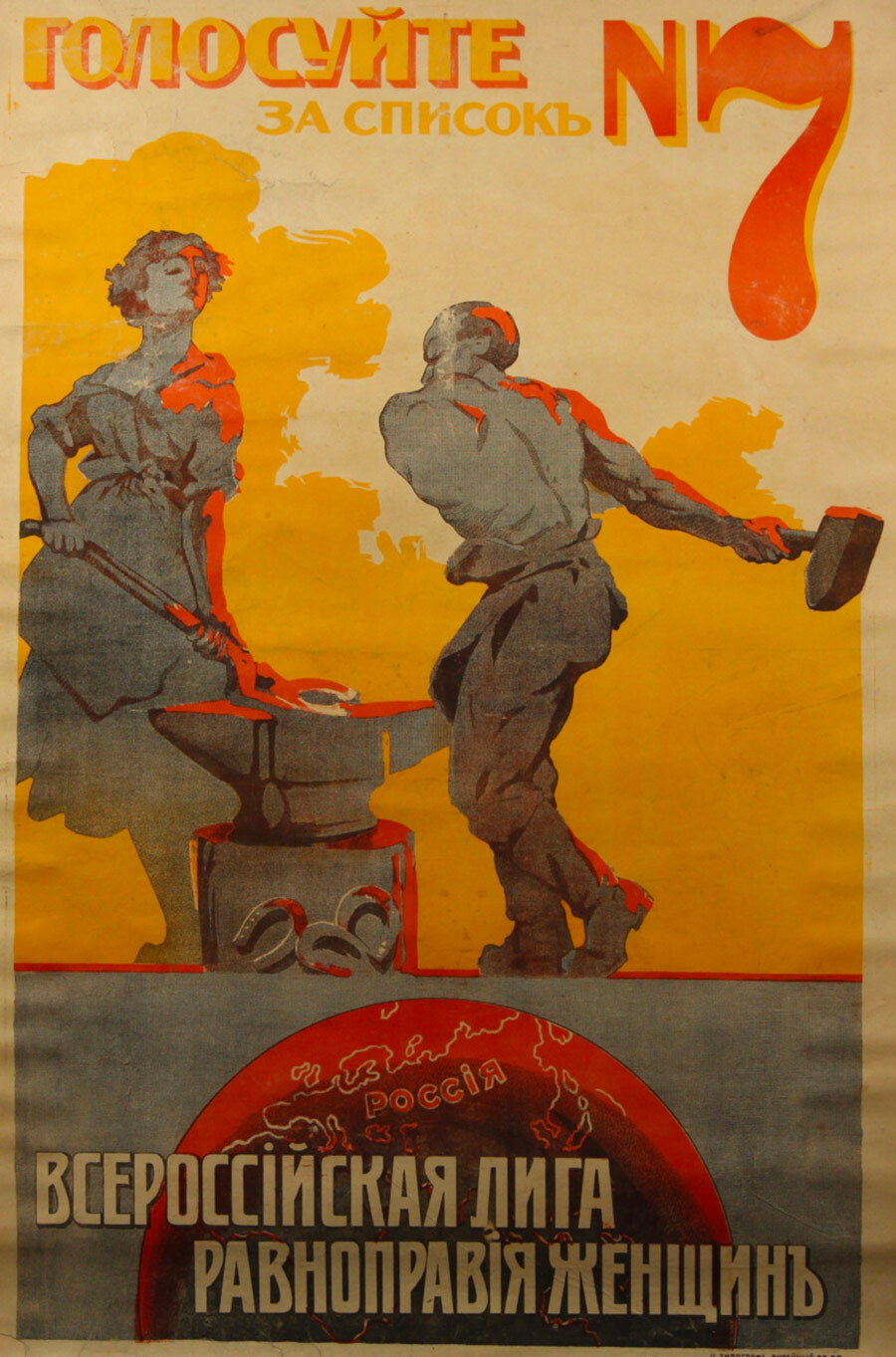
Public domain
In the 1970s, a survey was conducted among women, asking them: “Would you leave your work if your salary was given to your husband?” And 70% of respondents said “no”.
The state also didn’t encourage a lack of work: for example, before the 1980s, the amount of pension one received was calculated based on work experience, so people who didn’t work anywhere received no pension. However, officially, women were not prohibited from being just housewives – and they existed.
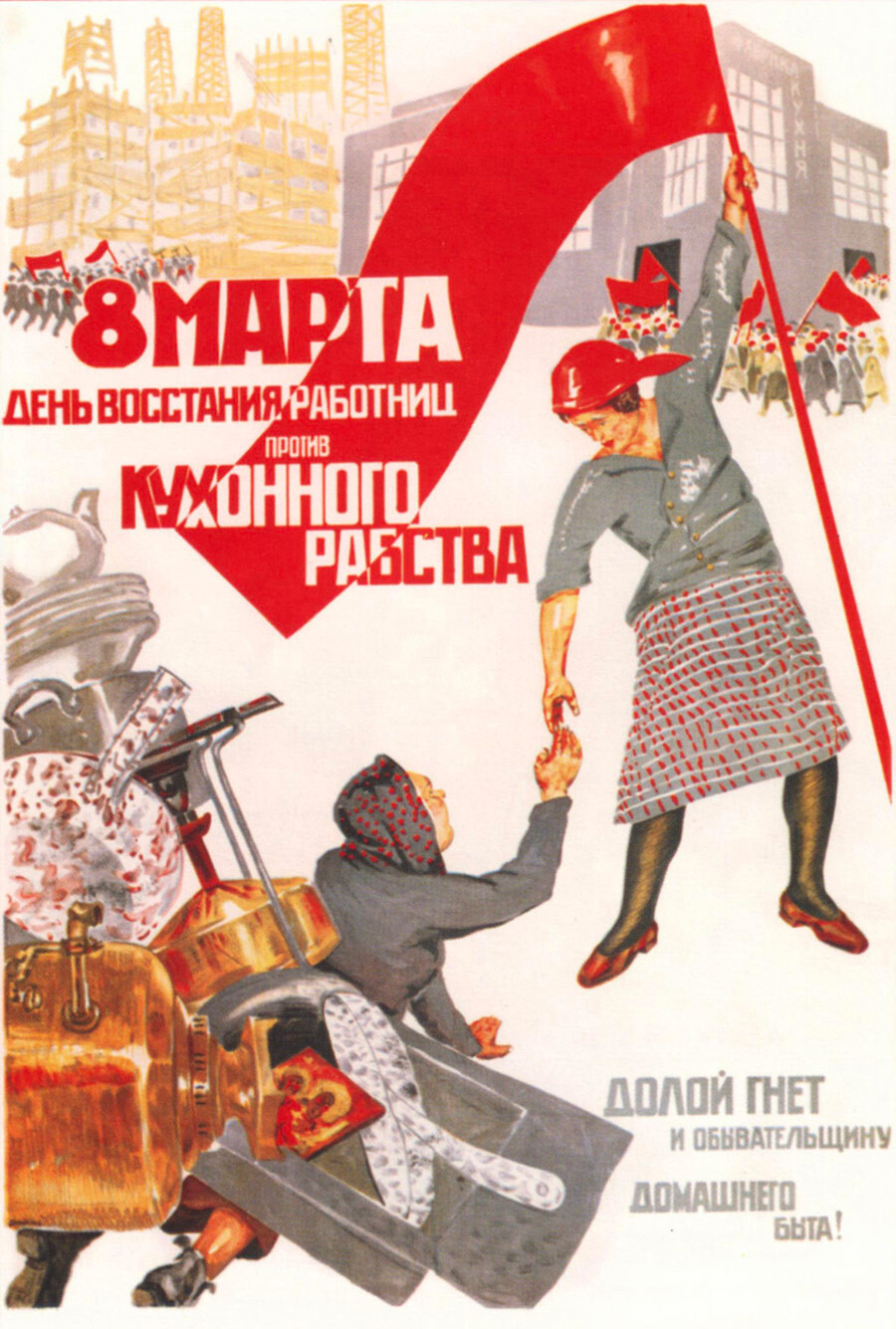
Public domain
“My late grandmother had no work approximately since the beginning of the 1960s. She cared for two kids and was a housewife. There were no problems with that, but, later, she also received no retirement pension, since her work experience wasn’t sufficient (she lacked a couple of years of work to be eligible for a pension),” Gennady Abramov from Moscow recalled.
“My grandmother didn’t work. She had no time for that. She was a ‘Mother Heroine’ (there was such an award!) – a whole heap of kids and a house…” Andrei Rakovsky from Novosibirsk noted.
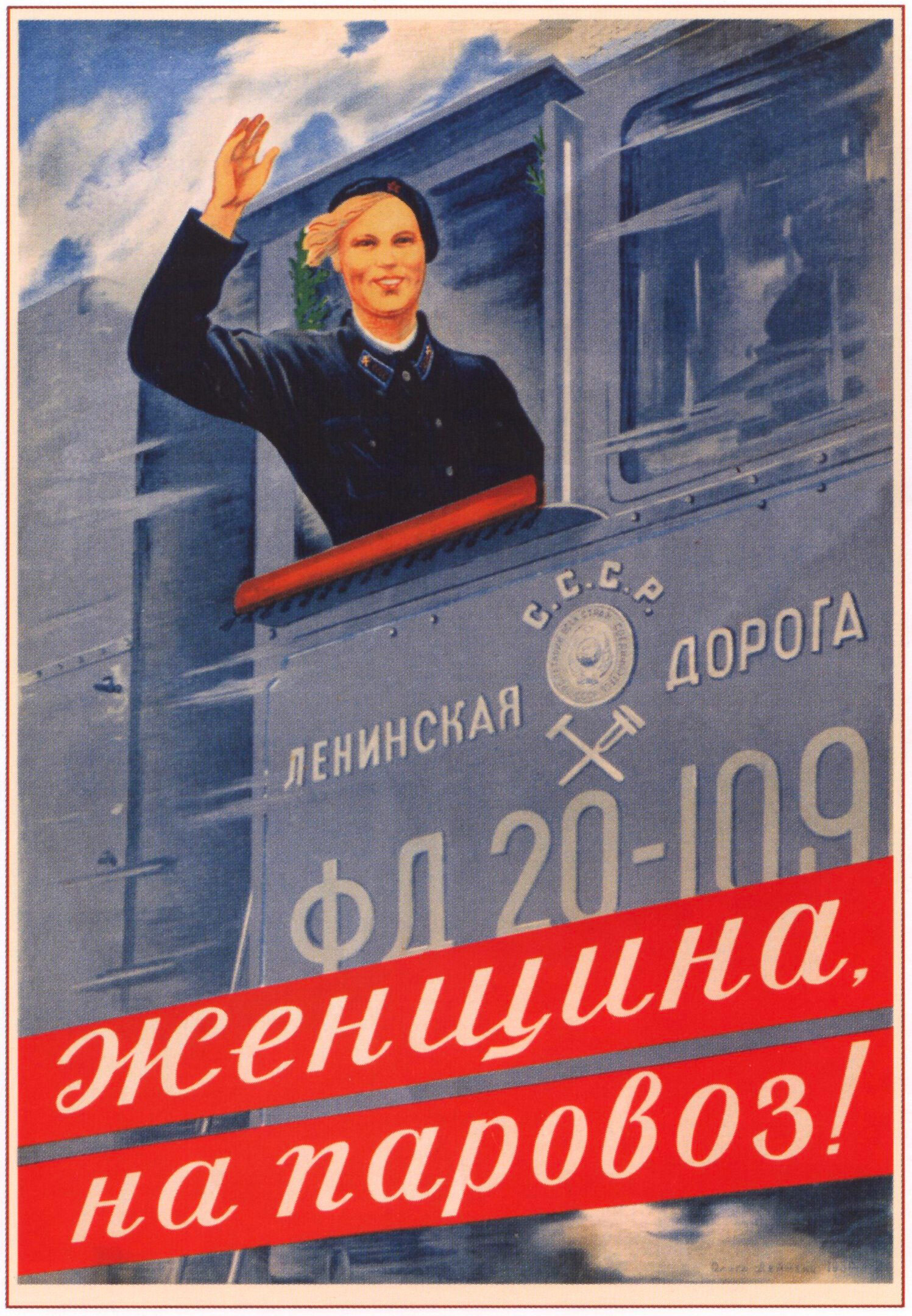
Public domain
As for the criminal punishment for not working – the so-called “parasitism” article – housewives were exempt from this law as “persons engaged in housekeeping.” So, they could rest assured there wouldn’t be any consequences.
Dear readers,
Our website and social media accounts are under threat of being restricted or banned, due to the current circumstances. So, to keep up with our latest content, simply do the following:
- Subscribe to our Telegram channel
- Subscribe to our weekly email newsletter
- Enable push notifications on our website
- Install a VPN service on your computer and/or phone to have access to our website, even if it is blocked in your country
[ad_2]